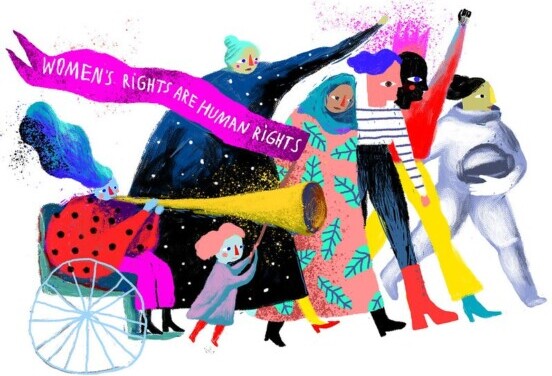Madrid, 25 June 2020 – The lack of publication of SDG data on Gender Equality in Europe is partly down to many countries not having laws requiring it to be collected, according to participants in a webinar on “Opening Up SDG 5” held by Access Info Europe on 18 June 2020. As a result, civil society organisations don’t have the data to engage in evidence-based policy debates.
Access Info found in a recent survey which looked into the publication of SDG data that, on average, only 57% of gender equality data was published across Europe. Discussing the reasons behind this finding, government statisticians explained that without laws, there is no mandate to do data collection, nor will funds be available for the research.
Find out our report “Opening Up SDG 5: What do we know about Gender Equality?” here
Access Info found that only two of seven countries surveyed had laws requiring collection and publication of SDG data, and has recommended that governments adopt such laws as a matter of urgency, given that there are only 10 years to achieve the SDGs and, without data, measuring progress is impossible.
Another problem identified by the report and discussed in the webinar is how to prioritise which data will be collected. Access Info found that Eurostat, the statistical office of the European Union, and many national statistics offices, have excluded many SDG indicators as “not relevant”, including that on female genital mutilation (FGM). Indeed, this indicator is widely viewed as not relevant in a European context, even though it is estimated that there are 600.000 FGM survivors in the European region, and 180.000 girls at risk in 13 EU countries.
Chiara Cosentino, Head of Policy & Advocacy at End FGM European Network, asked for bigger efforts in order to have common European methodologies for the estimation of FGM prevalence in the region. She also called for CSOs to have access to data so that their advocacy to policy makers can be evidence-based.
Participants also talked about the challenges of data collection on FGM in other countries around the world, such as Liberia, where the data gatherers need to be attuned to cultural sensitives, something that is also a challenge in Europe.
The webinar participants heard the case of Austria, which overall has good publication of SDG 5 data. There is nevertheless a lack of information on gender violence, with the only available data coming from the EU’s Fundamental Rights Agency in 2012. Austria also has no data on “time spent on unpaid domestic and care work” nor on the number of victims of FGM.
For Alexandra Wegscheider-Pichler, National Focal Point for SDG-Indicators at Statistik Austria, having gender statistics is important because “there’s no monitoring without data”. “Effective monitoring is necessary to measure the progress of gender equality and the progress of the SDGs,” added Wegscheider-Pichler.
Alexandra also stressed the importance of thinking “outside of the box” for national statistics offices to gather as much data as possible on the SDGs. That is the case for Statistik Austria. When they first started gathering the data that was available within the statistics office, they only had a set of about 20 indicators. Right now, the Austrian set includes data for about 200 indicators. To achieve this, they had to knock on many doors, and request and use data from different national and international institutions such as ministries, the Austrian Parliament, Eurostat, and the Fundamental Rights Agency, among others.
Participants in the webinar discussed how to remedy these problems, including by having a European-wide debate on priorities, establishing common methodologies for data collection, and encouraging the EU and Eurostat to start collecting a full set of data related to all 232 SDG indicators.
This webinar is part of a series of SDG data webinars organised by Access Info Europe. On 23 June 2020, a second webinar was held, in which participants debated and shared best practices on how to collect and publish SDG data.
Watch the full webinar “Opening Up SDG 5: How much data is available on Gender Equality?” here.
Download speakers’ presentations:
- Alexandra Wegscheider-Pichler, National Focal Point for SDG-Indicators at Statistik Austria

- Chiara Cosentino, Acting Director and Head of Policy & Advocacy at End FGM European Network

Cover picture: “Left Behind No More: Illustrations from Ukraine” by Dana Rvana and UN Women “CEDAW in Action!” project, UN Women Europe and Central Asia, used under CC.BY-NC / Downside from original.

